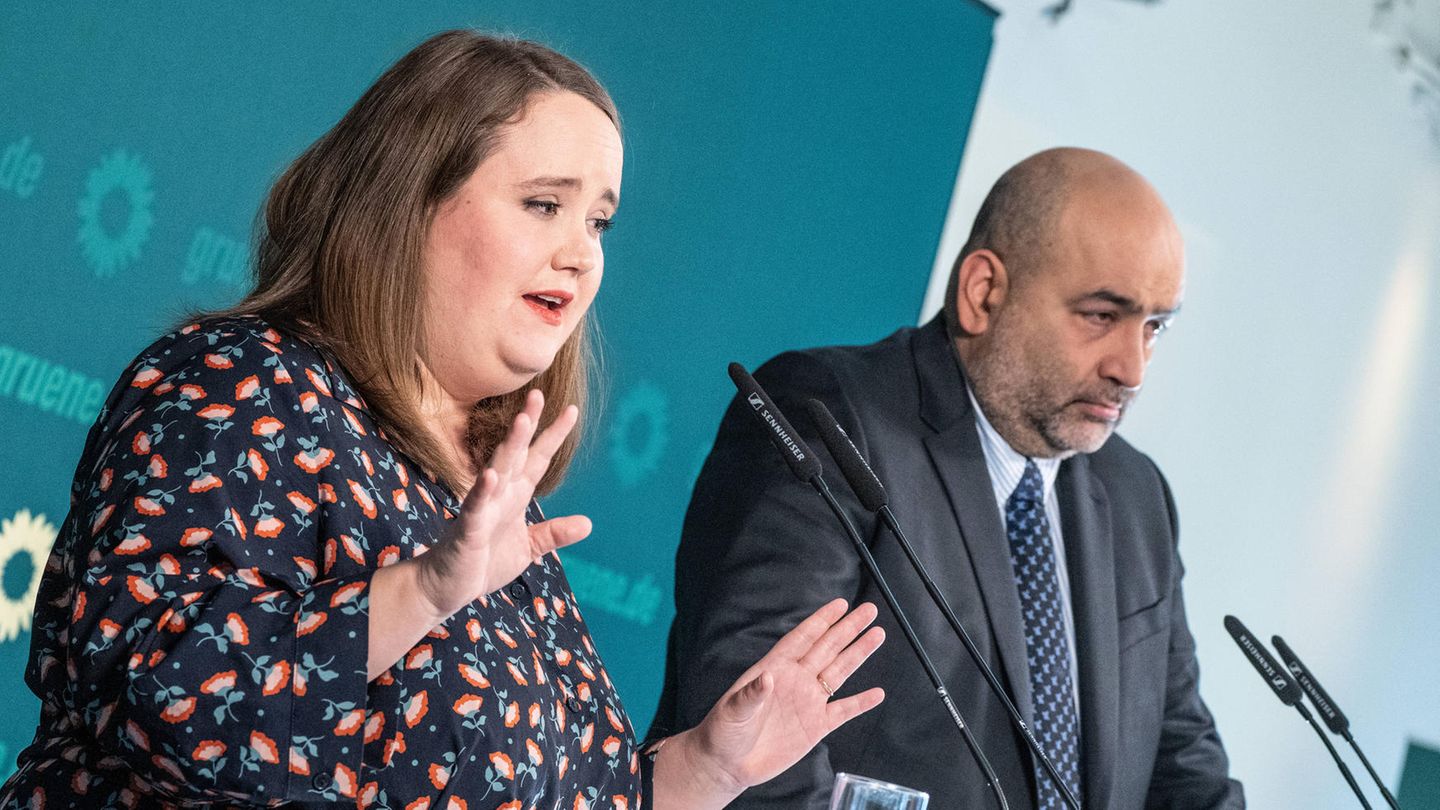The Greens lost a lot of votes in the EU elections. Now the party is learning its first lessons from the defeat. What will this achieve?
On the evening of the EU elections, the Greens were almost literally confronted with rejection. The party gathered in Berlin’s Columbia Hall for election night. A man stood on the balcony opposite for a long time. His T-shirt bore the words “Fuck Greens”, which was easy to see from the outside area where party supporters were getting drinks and snacks. For some, the Greens became a real enemy when they were in government.
But overall, approval has also declined significantly. This is shown by the election results from the evening at the beginning of June: The Greens received 11.9 percent, compared to 20.5 percent five years ago.
The latest election defeat, just over a year before the federal election, has plunged the Greens into an identity crisis and caused old struggles over direction to flare up again. The losses were not easy to interpret: the party lost many voters to the Union. But also many to the camp of non-voters. And young people in particular have often defected to the small party Volt. So are the Greens too “green” for people? Is there not enough “pure green” in the government? Or is it ultimately both?
Green Party leaders present lessons
The party leadership hastily announced that it would be reviewing the election results. Around five weeks later, the time has come: in an online event on Wednesday evening, the two co-party leaders Ricarda Lang and Omid Nouripour will present to their grassroots members the conclusions they want to draw from the result. And they will also admit to some mistakes in front of what they say are around 1,500 listeners.
For example, that in the past the party had been satisfied with some compromise formulas. Supporters of both wings of the party could live with them, but they were not easy to sell to many citizens. Or that the promise to young people (“Now it’s your turn”) had not been kept. And that in the final stretch of the election campaign, the issues that most concerned people were not addressed sufficiently.
Lang and Nouripour say they want to do a few things differently. This includes taking people’s worries and problems seriously, such as fear of war or rising inflation. This does not mean that they make policy based on surveys, but that they take the concerns expressed by the population seriously. In the future, they also want to use clearer language. And they want to distance themselves from a “politics of imperatives” – in other words, avoid at all costs the impression that the Greens want to dictate something to people.
Politics for the “broad of society”, but also for the core clientele
Lang from the left wing reiterates the claim that the party wants to make politics for “the broader society, i.e. for the whole country”. For the Greens, it must be about fighting for their core voters – but at the same time also about reaching more voters.
It is obvious that this will be a difficult task. It is still an open question whether it can be achieved at all. The two chairmen see one way in placing greater emphasis on the issue of climate and nature conservation. “This is where our core values lie, this is where our competence values lie,” says Nouripour. The party hopes to gain more credibility and differentiation in this way. The focus must be on ensuring that climate policy works in everyday life and is affordable. With the so-called heating law, the Greens learned the hard way that they did not initially succeed in doing this.
The Green Party leadership also wants to ensure that the party resolves content-related conflicts better internally in the future – and then stands behind the result together. It should no longer be a matter of “looking for formulaic compromises,” says Lang. In the end, there should be no ambiguity on important issues.
Success remains to be seen
Will this succeed? It is at least a question mark. Up to now, the party has often presented itself as divided, particularly on the important issue of migration. And this despite the fact that the party leaders have already tried in the past to set the common line of “humanity and order”.
The lessons learned still have to prove themselves in practice. They are unlikely to have much impact on the state elections in Saxony, Thuringia and Brandenburg in a few weeks. If only they could help in the next federal election! That is at least the hope of the two chairmen.
Source: Stern
I have been working in the news industry for over 6 years, first as a reporter and now as an editor. I have covered politics extensively, and my work has appeared in major newspapers and online news outlets around the world. In addition to my writing, I also contribute regularly to 24 Hours World.




